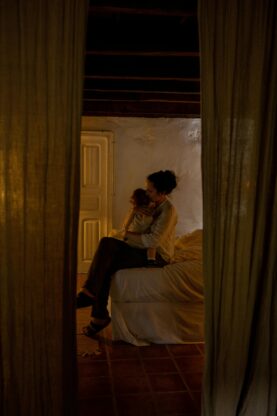Table of Contents
Supervision and Monitoring
One of the most critical safety procedures for babysitters is maintaining constant supervision and monitoring of the children in your care. It is imperative to always keep a close eye on the children, especially younger ones who may be more prone to accidents. Avoid distractions such as cell phones, television, or social media, and focus your attention on the children at all times. Close supervision can help prevent accidents, injuries, and emergencies from occurring.
On-Demand Childcare in Your Neighborhood
Book a Sitter
Childproofing
Before babysitting, it is essential to familiarize yourself with the home environment and identify any potential hazards or dangers. Take the time to childproof the house by securing cabinets, outlets, stairs, and other risky areas. Remove any small objects that could be choking hazards and make sure that cleaning supplies, medications, and sharp objects are out of reach of children. By childproofing the home, you can create a safer environment for the children to play and explore.
Emergency Preparedness
Every babysitter should be well-prepared for emergencies and know how to react in a crisis situation. Familiarize yourself with the location of emergency exits, fire extinguishers, and first aid kits in the house. Develop an emergency plan with the parents that includes contact information for emergency services, parents, and other trusted adults. Practice fire drills and discuss emergency procedures with the children so that everyone knows what to do in case of an emergency. Being prepared can help you stay calm and handle emergencies effectively.

Basic First Aid
Having basic first aid knowledge is crucial for babysitters to respond to injuries and illnesses promptly. Familiarize yourself with basic first aid techniques such as CPR, choking rescue, wound care, and how to handle allergic reactions. Make sure to have a first aid kit on hand with essential supplies such as bandages, gauze, antiseptic wipes, and gloves.
In case of an emergency, stay calm, assess the situation, and provide appropriate first aid while waiting for help to arrive.
Communication with Parents
Effective communication with parents is key to ensuring the safety and well-being of the children while babysitting. Always ask parents for important information such as emergency contacts, medical conditions, allergies, and behavioral concerns. Keep parents informed of any incidents, accidents, or issues that arise during babysitting. Follow any specific instructions or guidelines provided by parents regarding bedtime routines, meals, screen time, and discipline. By maintaining open and clear communication with parents, you can ensure a smooth and safe babysitting experience for everyone involved.
In conclusion, it is vital for every babysitter to be well-prepared and knowledgeable about essential safety procedures to ensure the well-being of the children under their care. By prioritizing supervision, childproofing, emergency preparedness, first aid, and communication with parents, babysitters can create a safe and secure environment for children to thrive. Remember that safety should always be the top priority while babysitting, and by following these key safety procedures, you can handle any situation with confidence and competence.










